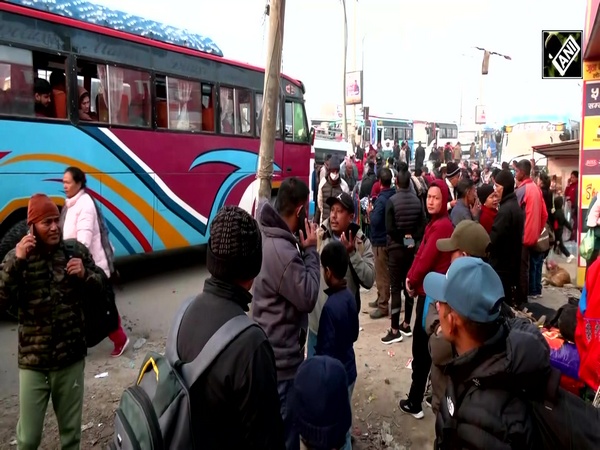Transnational repression from China threatens diaspora in Japan
Oct 10, 2024

Tokyo [Japan], October 10 : The Chinese authorities are making attempts to threaten people from China living within Japan who remain critical of the Chinese government. The government's harassment of people from China includes people belonging to East Turkistan, Tibet, and Inner Mongolia.
The government forces the diaspora from these areas to not organise protests against the government or engage in events deemed politically sensitive by the Chinese government.
Additionally, these people are also forced to provide information on others in Japan, a statement by Human Rights Watch (HRW) claimed.
Teppei Kasai, Asia program officer at Human Rights Watch, while commenting on the issue stated, "Chinese authorities appear to have few scruples about silencing people from China living in Japan who criticise Beijing's abuses. The Japanese government should make clear to Beijing it won't tolerate the long arm of China's transnational repression in Japan."
According to the same statement, the HRW between June and August 2024 interviewed 25 people from Hong Kong, Mainland China, East Turkistan, Tibet, and Inner Mongolia who were living in Japan and were involved in peaceful activities that were deemed unfavourable or threatening to one-party rule. These events included holding public events to raise awareness about crimes against humanity in Xinjiang, promoting Tibetan culture, or having reading clubs to discuss a book by an activist from Inner Mongolia.
The interviewed individuals claimed that the Chinese police had contacted them or their relatives back home, pressuring them to end their activities in Japan; moreover, several of the interviewees provided logs of messages from the Chinese social media platform WeChat, recordings of video calls, and CCTV footage that corroborated their accounts.
One such individual claimed that they had stopped participating in any politically sensitive in-person and online activities after receiving a call from Chinese authorities in 2024. Another individual who had agreed to participate in the interview later declined due to the fear that Chinese authorities would retaliate.
Several Uyghur communities from Xinjiang stated that Chinese authorities had contacted them through their relatives back home in East Turkistan. The Chinese police called them through WeChat, telling them to either stop their anti-Chinese government activities in Japan or press them to share information about Japan's Uyghur community, including the members of the advocacy group Japan Uyghur Association.
A person from Tibet who promotes Tibetan culture in Japan said that when they went to the Chinese embassy in Tokyo to renew their passport, embassy officials told them they needed to return to Tibet to do so. A person from Taiwan previously involved in Hong Kong's pro-democracy activism in a third country said the Chinese embassy sent them multiple invitations to "retrieve important documents." Both people said they rejected the embassy's recommendations, fearing they would be detained or face punishment.
Chinese authorities have violated the rights of Chinese nationals who return home. In 2023, Hong Kong police arbitrarily arrested a 23-year-old Hong Kong woman upon her return to the city for pro-democracy comments she posted online while studying in Japan.
Several people said they did not seek help from the Japanese police as they did not believe Japanese authorities could provide any remedy or feared reprisals or making the situation worse for themselves and their relatives back home.

















